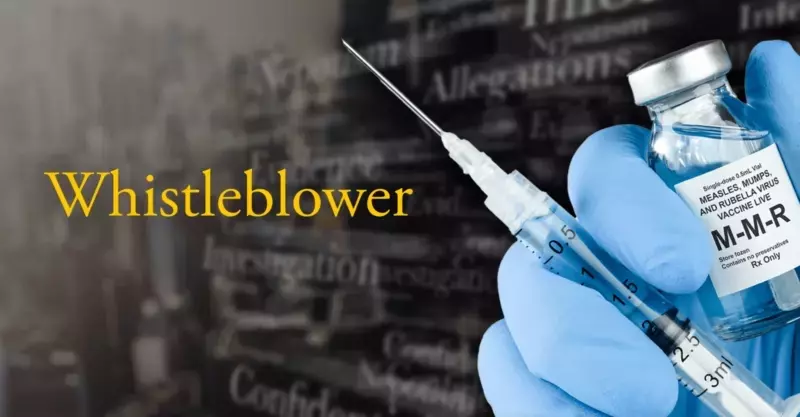
The CDC's Ongoing Silence on Vaccine Safety: A Call to Action
Whistleblower's Revelation: The Hidden Data
In a pivotal moment, Dr. William Thompson came forward with alarming revelations about the CDC’s handling of data related to the MMR vaccine. His testimony highlighted a significant omission in a study published in Pediatrics in 2004. According to Dr. Thompson, the omitted data indicated an increased risk of autism among African American males who received the MMR vaccine before 36 months of age. This revelation exposed a breach in the integrity of medical research and raised concerns about the ethics surrounding vaccine safety studies.
Dr. Thompson's statement was not just a disclosure of scientific misconduct but also a plea for accountability. He emphasized that decisions regarding which findings to report were made after data collection, suggesting a deviation from standard research protocols. Despite his efforts to bring this issue to light, the Department of Health and Human Services Office of Research Integrity (ORI) did not take corrective action, leaving the public in the dark about these critical findings.
Legal and Political Stalemate: Unanswered Calls for Transparency
Following Dr. Thompson's whistleblowing, U.S. Representative Bill Posey (R-FL) called for Congress to subpoena the CDC whistleblower. However, no such subpoena was ever issued, and Dr. Thompson never appeared before a Congressional committee. In a civil case involving Yates Hazlehurst, Dr. Thompson was scheduled to testify about vaccine injuries. Yet, his testimony was blocked by then-CDC Director Dr. Thomas Frieden, preventing crucial evidence from being presented.
This legal and political stalemate underscores the challenges faced by those seeking transparency in vaccine safety. The lack of action by both legislative bodies and judicial institutions highlights the systemic barriers that whistleblowers encounter when challenging established medical narratives. It raises important questions about the balance between public health policies and individual rights.
Impact on Public Health: The Unseen Consequences
Brian Hooker, Ph.D., Chief Scientific Officer at Children’s Health Defense (CHD), conducted an in-depth review of the CDC’s data on autism incidence and MMR vaccination timing. His analysis revealed startling results: children who received the MMR vaccine before their third birthday had a 152% higher chance of developing isolated autism. For African American boys specifically, the risk increased by 286% if they received the vaccine before turning three.
These findings suggest that early vaccination schedules may have unintended consequences on neurodevelopmental outcomes. Dr. Hooker’s research indicates that adjusting the vaccination schedule could have prevented thousands of autism cases over the past decade. The implications of this data are profound, as it calls into question the efficacy and safety of current vaccination protocols.
A Call for Change: Advocacy and Accountability
Mary Holland, CEO of CHD, expressed outrage over the CDC’s decade-long silence on this issue. She emphasized that withholding information that could prevent autism is a grave violation of the agency’s duty to protect public health. The continued endorsement of the MMR vaccine without addressing these concerns has led to growing distrust among parents and healthcare providers.
Children’s Health Defense advocates for a more transparent approach to vaccine safety research. They argue that holding responsible parties accountable and establishing safeguards can restore trust in public health institutions. By eliminating toxic exposures and ensuring rigorous scrutiny of vaccines, CHD aims to safeguard the health of future generations. The organization’s ongoing efforts underscore the importance of advocacy in driving meaningful change in public health policies.
